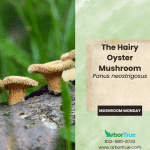
Mushroom Monday: The Hairy Oyster Mushroom (Panus neostrigosus)
February 24, 2025
North American Beaver: Nature’s Engineer
February 28, 2025
We’ve Solved The Caper! What Are Capers?
What Are Capers?
Capers are the flavorful flower buds harvested from the Capparis spinosa plant. These small, green spheres are picked before maturing, then dried and preserved through salt curing or pickling to remove their natural bitterness.
What Are Caper Berries?
Beyond capers, you might also encounter caper berries—the fruit produced after the caper flowers mature. Caper berries, roughly the size of an olive and containing seeds, boast a softer texture and a milder flavor compared to capers. Like their smaller counterparts, caper berries are often pickled.
What Are Different Varieties of Capers?
You may have noticed terms like “nonpareils” or “surfines” associated with capers. These terms refer to different caper varieties based on their diameter, all from the same plant:
Nonpareils: ~7 mm across
Surfines: 7-8 mm across
Capucines: 8-9 mm across
Capotes: 9-11 mm across
Fines: 11-13 mm across
Grusas: 14+ mm across
Smaller sizes, such as nonpareils, are often considered the best due to their delicate flavor. Larger sizes can be tougher and more acidic.
What Do Capers Taste Like?
Capers offer a unique blend of salty, tangy, floral, and savory flavors, reminiscent of an olive with a hint of lemon. They can enhance a wide range of recipes, especially Mediterranean dishes, adding a distinctive taste. You can find capers at various grocery stores.
Information about Capparis spinosa
Capparis spinosa, commonly known as the caper bush or flinders rose, is a perennial evergreen shrub native to southern Eurasia and parts of Australia. Typically growing between two and three feet tall and spreading three to six feet wide, this plant produces white to pinkish flowers from May through September.
Preferring full sun and poor soil, the caper bush is sensitive to cold temperatures and may lose its leaves or die if exposed to frost. Though the flowers only last a day, the plant blooms repeatedly throughout its flowering season. Due to their fragility, the small, delicate buds are hand-harvested.
If you found this information about capers interesting, check out our other posts on our TrueTreeTalk blog. Follow us on Facebook to keep up with these and other posts. Check out our list of blog posts grouped by topic for more to read.
* * *
ArborTrue is a science-based tree service company in the greater Houston area. We also serve Austin and other parts of Central Texas. We provide a range of services including tree trimming, tree pruning, tree removal, tree planting, arborist consultations, and more. Call us today at 832-980-8733 (Houston) or at 512-546-3833 (Austin) or reach out to us online to schedule an appointment.

